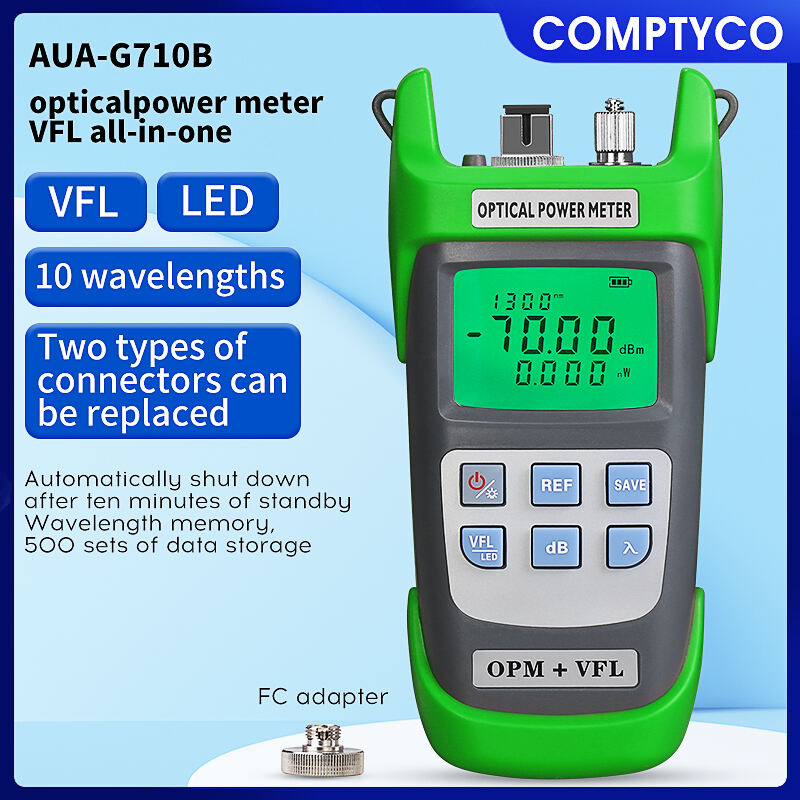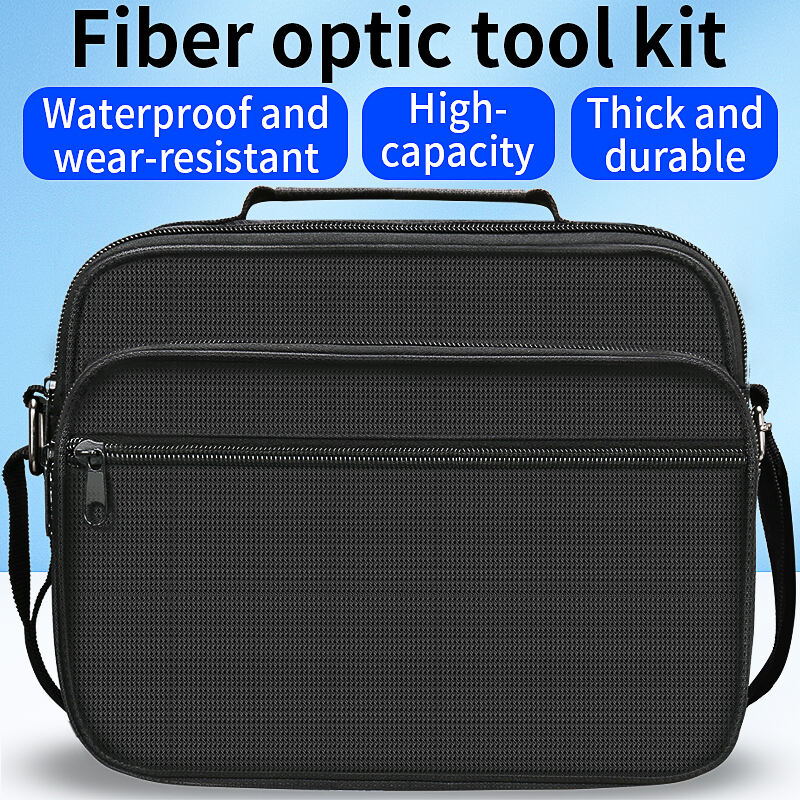optical power meter use
An optical power meter is a sophisticated measurement instrument designed to precisely measure the power level of optical signals in fiber optic systems. This essential tool combines advanced photodetector technology with precise calibration capabilities to deliver accurate power measurements across various wavelengths. The device typically consists of a main unit with a digital display and a detector head that captures the optical signal. Modern optical power meters feature auto-wavelength recognition, data storage capabilities, and USB connectivity for data transfer. They can measure power levels ranging from +30 dBm to -80 dBm, making them suitable for both high-power and low-power applications. These instruments are crucial in fiber optic network installation, maintenance, and troubleshooting, enabling technicians to verify signal integrity, identify potential issues, and ensure optimal network performance. The meters also incorporate temperature compensation and automatic offset nulling to maintain measurement accuracy across different environmental conditions. Many models offer multiple calibration wavelengths, typically including 850nm, 1300nm, 1310nm, and 1550nm, to accommodate various fiber optic applications. Advanced features such as real-time monitoring, reference level storage, and relative power measurement capabilities make these instruments indispensable in modern optical communications infrastructure.


